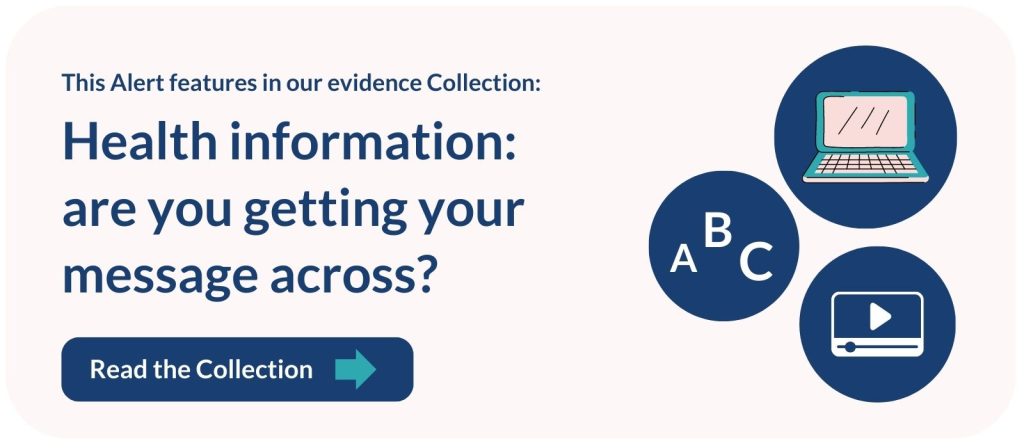 |
The National Institute for Health Research (NIHR) is an organisation that funds others to do Health and Care research. |
|
|
In 2020, The NIHR funded some research done by the University of Kent. |
|
|
The researchers looked at adults with learning disabilities having romantic relationships. |
|
|
They asked people with a learning disability over the age of 22, what they thought about love. |
|
|
What the researchers found out is similar to what other researchers have said about romantic relationships for people with learning disabilities. |
Why was this research important? |
|
|
|
Care for people with learning disabilities is usually for supporting their health needs only. |
|
|
It does not always look at someone’s whole life and make sure there are activities for them to do. |
|
|
Relationships for people with learning disabilities are not treated as important. |
|
|
However, it is important for adults with learning disabilities to have romantic relationships if they want to. |
|
|
It is also important that they get the right support they need to have these relationships. |
|
|
In the past, people have thought that adults with learning disabilities do not want or need these sorts of relationships. |
|
|
Families and Carers have also stopped people from having relationships because they are worried about what might happen. |
|
|
The Government and Care Providers need to understand the wants and needs of people with learning disabilities. |
|
|
This will make sure that their policies treat people how they want to be treated. |
|
|
This research gives people with learning disabilities a chance to talk about romantic relationships. |
|
|
One person who was interviewed said: “I say love is a wonderful thing. Love brings you happiness, brings you contentment.Love makes me feel good inside and my heart is fixed.” |
|
|
Michelle McCarthy, Professor in Learning Disabilities at the University of Kent said:“People’s responses suggest that their romantic and emotional lives are as rich as anyone else's.It is therefore vital for anyone who works with adults with learning disabilities to understand and respect that.” |
How was the research done? |
|
|
|
A group of adults with learning disabilities were paid to help the researchers with this project. |
|
|
This was called the ‘advisory group’. |
|
|
The researchers started by interviewing 40 adults with learning disabilities. |
|
|
They spoke to men and women. |
|
|
They also made sure they spoke to people from different cultures and backgrounds. |
|
|
Out of the 40 people, only two people wanted to have a relationship with someone of the same sex.This might be a romantic relationship between two men or two women. |
|
|
Over half of the people interviewed were already in a relationship. |
|
|
The researchers recorded the interviews and made a video. |
|
|
You might like to watch 'Making Connections and Building Confidence: Dating Agencies for People with Learning Disabilities', which is a video made by the researchers. |
|
|
They spoke to more people with learning disabilities at small groups called ‘workshops’. |
|
|
100 people with learning disabilities were able to share their ideas about relationships in this research. |
What did the researchers find out? |
|
|
|
In this study, people with learning disabilities got to share what they thought about romantic relationships. |
|
|
One person said: “Someone to care for you, help with your ups and downs. Someone to comfort you and hug you…it’s just really nice to have that.” |
|
|
A lot of the people who were interviewed said that they did not have a girlfriend or a boyfriend for a long time. |
|
|
Many people said they were lonely or felt excluded. |
|
|
Someone said: “I can’t imagine spending the rest of my life on my own, growing old on my own, I don’t think it would be nicest place.” |
What did help people to have romantic relationships? |
|
|
|
The researchers did find out some things that helped people to have relationships. |
|
|
They were:1. Family and staff support |
|
|
People said that when they had good relationships with their social care staff, they helped them to find relationships. |
|
|
2. Opportunities to learn about relationships |
|
|
Some people said that they talked about all different kinds of relationships at their support group. |
|
|
3. Specialist dating agencies for people with learning disabilities |
|
|
There are dating services that help people with disabilities to find romantic relationships. |
|
|
People who used the dating services did say that there were a lot of men and less women using them. |
|
|
Men who were looking for relationships with other men had to wait a long time to find a relationship. |
|
|
You might like to read 'Making Connections and Building Confidence: A Study of Specialist Dating Agencies for People with Intellectual Disabilities' a research paper on specialist dating agencies. |
What did not help people to have romantic relationships? |
|
|
|
Sometimes there are things that stop people with learning disabilities having romantic relationships.These are called ‘barriers’. |
|
|
The researchers found that some of the barriers that stopped people from having romantic relationships were: |
|
|
1. Not knowing how to meet a partner |
|
|
None of the people who were interviewed had a good experience of using dating sites. |
|
|
They thought dating agencies were too much money and speed dating was too quick. |
|
|
2. A lack of social opportunities and not having enough money |
|
|
Some people said that social services did not think their social lives were important. |
|
|
Only a few people who were at the focus group had a job so it was hard to meet a boyfriend or girlfriend at work. |
|
|
3. Social care services do not help people to have relationships |
|
|
Staff shift patterns meant people were not able to go out to social events. |
|
|
Some people said they were not allowed to have someone stay over at their house or in their room. |
|
|
4. A lack of privacy or being able to make their own decisions |
|
|
Some people said that their family or support staff made choices about their relationships. |
|
|
Others said that they did not have enough privacy or could not go out on their own. |
|
|
You might like to read ''“She misses the subtleties, I help make the invisible visible”: Parents' role in supporting adults with intellectual disabilities with relationships' a paper on how families can support someone to have a romantic relationship. |
What are the next steps? |
|
|
|
Having a relationship is really important to people with learning disabilities. |
|
|
Support staff should think about this when they support people with learning disabilities. |
|
|
They should include relationships in care plans. |
|
|
People who deliver services need to train their staff to have conversations about relationships and support people to have them. |
|
|
More research and work needs to be done to help people with learning disabilities to have relationships if they want them. |
|
|
More work needs to be done to include people with multiple and profound learning disabilities or autism. |
|
|
The researchers think more work should be done to help people with learning disabilities in same-sex romantic relationships. |
|
|
More work should be done to let people know about disability dating services and accessible events in the community. |
Where can you find out more information? |
|
|
|
You might like to read the full report. |
|
|
You might like to watch ‘Love is a wonderful thing’ which helps to explain this research. |
|
|
You might also like to watch 'Making Connections, Building Confidence', which is a video for Social Care Providers about romantic relationships for people with learning disabilities. |

NIHR Evidence is covered by the creative commons, CC-BY licence. Written content and infographics may be freely reproduced provided that suitable acknowledgement is made. Note, this licence excludes comments and images made by third parties, audiovisual content, and linked content on other websites.




























































